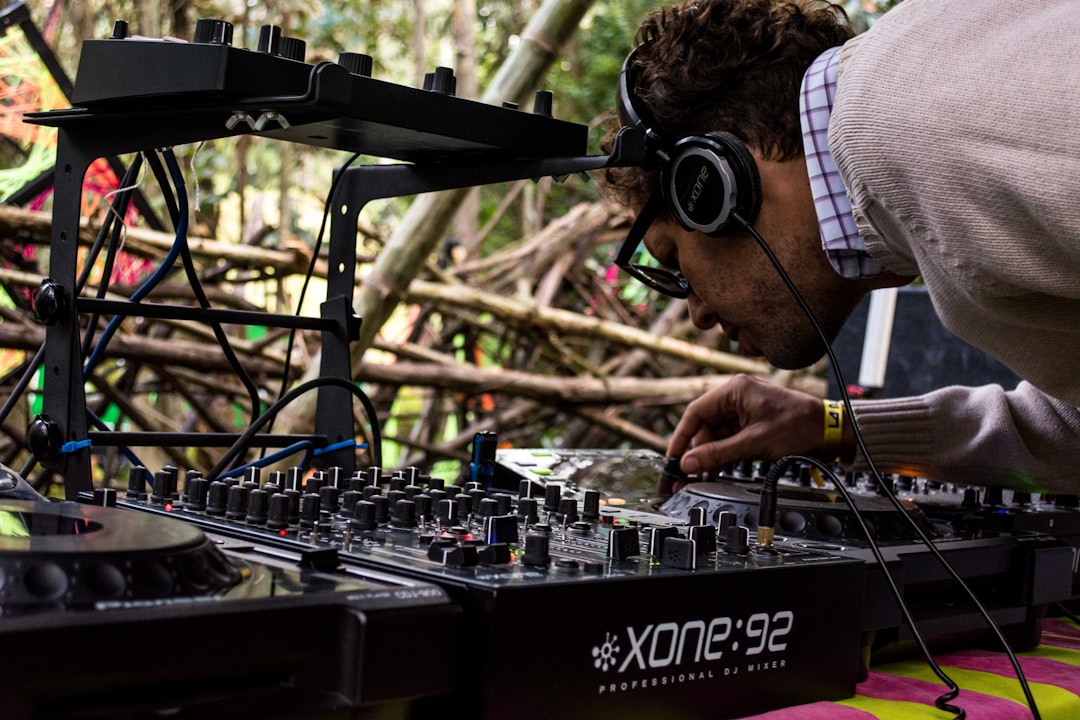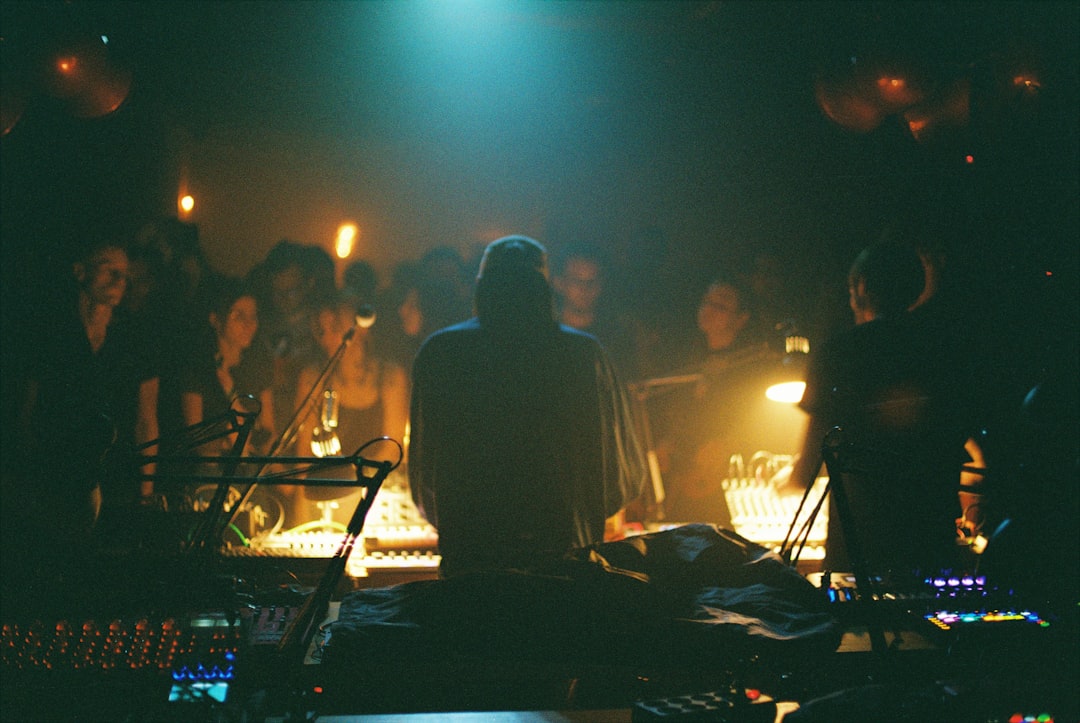Is DJ a skill?
What is DJing and its significance?
DJing is the art of mixing and blending different tracks together to create a seamless flow of music. It involves selecting tracks, beatmatching, and using various techniques to keep the energy on the dancefloor high. DJing is not just about playing songs; it requires an understanding of music theory, timing, and crowd psychology. A skilled DJ can read the room and adjust their set accordingly to keep everyone engaged and entertained.
The significance of DJing lies in its ability to connect people through music. DJs have the power to shape the atmosphere of a party or event, creating an unforgettable experience for everyone involved. They can introduce new sounds and genres, expose listeners to different cultures, and bring people together on the dancefloor. Additionally, DJing provides a platform for artists to showcase their creativity and unique style while interpreting existing tracks in their own way.
In conclusion, DJing is indeed a skill that requires technical knowledge, musicality, and an understanding of how to engage with an audience. It plays a significant role in bringing people together through music by creating memorable experiences at parties or events while showcasing artistic expression.
The art of mixing music: Techniques and creativity.
The art of mixing music is a dynamic and ever-evolving skill that requires both technical expertise and creative intuition. DJs are skilled individuals who have mastered the techniques of seamlessly transitioning from one song to another, creating a continuous flow of music that keeps the energy high and the crowd engaged. They possess an in-depth understanding of beats, tempo, pitch, and key to flawlessly blend different tracks together.
However, being a DJ is not just about technical proficiency; it also demands creativity. A great DJ knows how to read the crowd and curate a setlist that caters to their preferences while still infusing their own unique style. They have an innate ability to select tracks that create a cohesive atmosphere and take listeners on a musical journey. Moreover, they can add their personal touch by incorporating effects, loops, samples, or even live instrumentation into their mixes, elevating them from mere playlists to artistic expressions.
In conclusion, being a DJ is undoubtedly a skill as it involves mastering various mixing techniques and possessing the creativity to craft memorable sets. It’s more than just playing songs one after another; it’s about understanding how each track interacts with one another and using that knowledge to create something greater than the sum of its parts. Whether mixing at clubs or festivals or crafting intricate studio mixes for online platforms, DJs play an essential role in providing unforgettable musical experiences for audiences around the world.
Technical skills required to be a DJ.
Yes, being a DJ requires technical skills that are crucial for success in the field. Firstly, having a solid understanding of music theory is essential. This includes knowing different genres, musical structures, and how to count beats and bars. DJs need to be able to seamlessly mix tracks together, which involves beatmatching and phrasing. Beatmatching is the process of aligning the tempo (beats per minute) of two songs so they can be mixed together smoothly. Phrasing refers to mixing tracks at appropriate sections like the intro or chorus.
In addition to music theory knowledge, DJs must also have technical proficiency with equipment such as turntables, CDJs (digital DJ players), mixers, and software programs like Serato or Traktor. They need to know how to set up and calibrate their equipment properly for optimal sound quality. Furthermore, DJs should be skilled in using effects and manipulating tracks on the fly by applying techniques like looping or scratching.
Overall, while being a DJ may involve creativity and an ear for music selection, it also demands a solid foundation of technical skills that enable seamless song transitions and innovative live performances.
Musical knowledge and taste: Essential components.
When it comes to being a DJ, musical knowledge and taste are essential components that can make or break a performance. A skilled DJ not only needs to have an extensive knowledge of different music genres but also a deep understanding of what makes certain songs or beats resonate with the audience. This requires them to constantly stay updated with the latest releases as well as dig into the archives to discover hidden gems that can surprise and delight their listeners.
Furthermore, having a refined musical taste is crucial for DJs as it helps them curate sets that flow seamlessly and take the audience on a journey. Being able to select tracks that complement each other in terms of energy, mood, and style creates an immersive experience that keeps people engaged on the dancefloor. A DJ’s taste in music acts as their unique signature, setting them apart from others in the industry and attracting fans who resonate with their sonic choices.
In conclusion, being a DJ is indeed a skill that requires more than just technical know-how. An exceptional DJ possesses not only a vast musical knowledge but also an impeccable taste for selecting tracks that connect with their audience. Musical expertise coupled with personal preferences form the foundation on which DJs build their careers and create memorable experiences for partygoers around the world.
DJing as a performance art: Engaging the crowd.
DJing is not just about playing music; it is a skill that requires precision, timing, and an innate ability to read and engage the crowd. A skilled DJ knows how to create a seamless flow of tracks, building energy and anticipation throughout their set. They have the power to control the mood of the room, taking the audience on a journey through different genres and eras of music.
One of the key aspects of DJing as a performance art is engaging the crowd. A talented DJ understands that their role goes beyond simply playing songs; they are responsible for creating an immersive experience for their audience. By carefully selecting tracks that resonate with different segments of the crowd and seamlessly transitioning between them, DJs can captivate listeners and keep them on their feet all night long.
Furthermore, DJs have various techniques at their disposal to engage with the crowd during their performances. From scratching vinyl records to using effects like echo or reverb in real-time, DJs can add their unique touch to each track and bring excitement to live performances. Their ability to interact with the audience through mic skills or hyping up the crowd adds another layer of engagement that sets them apart from other musicians. In essence, DJing as a performance art showcases not only technical skills but also an understanding of how music impacts people emotionally and physically.
The debate: Is DJing a skill or talent?
The debate over whether DJing is a skill or talent has been ongoing among music enthusiasts. Some argue that DJing is a skill that can be learned and honed through practice, while others believe it requires an innate talent to truly excel in this field. Those who view DJing as a skill emphasize the technical aspects involved, such as beatmatching, mixing, and transitioning between tracks seamlessly. They argue that these skills can be acquired with time and dedication through training and experience.
On the other hand, proponents of DJing as a talent argue that there is an intangible element involved in creating a unique and captivating set. They believe that certain individuals possess an innate ability to read the crowd’s energy and select the right tracks to create an unforgettable experience. These individuals are said to have excellent musical instincts and are able to effortlessly connect with their audience on a deeper level.
Ultimately, whether one believes DJing is more of a skill or talent may depend on personal experiences and observations within the industry. It is clear that both technical proficiency and natural aptitude play significant roles in becoming a successful DJ, making it difficult to definitively categorize it solely as one or the other.
Conclusion: Appreciating the skill behind DJing.
In conclusion, DJing is undoubtedly a skill that requires a unique set of abilities and expertise. It goes far beyond simply playing music and involves the art of mixing tracks seamlessly, reading the crowd’s energy, and creating an atmosphere that keeps people engaged and entertained. DJs must possess a keen ear for music, understanding different genres, rhythms, and beats to create impactful transitions between songs.
Moreover, a skilled DJ knows how to navigate their equipment efficiently. They are proficient in using turntables or digital controllers to manipulate sound waves, adjust tempo and pitch, add effects, and create unique remixes on the spot. This level of technical proficiency takes years of practice to master.
Furthermore, DJing demands strong multitasking skills as DJs have to simultaneously manage various elements like song selection, beatmatching, monitoring audio levels, interacting with the crowd, and adapting their set based on audience response. It requires adaptability and quick decision-making skills to ensure smooth transitions while keeping everyone dancing throughout the night.
In conclusion, DJing is indeed a skill that combines musical knowledge with technical expertise. A talented DJ understands how to craft an unforgettable experience for their audience by blending different tracks harmoniously while keeping the energy high on the dance floor. Their ability to read a crowd’s mood and respond accordingly demonstrates their skill in manipulating music to create memorable moments for all those who are lucky enough to be part of it.






